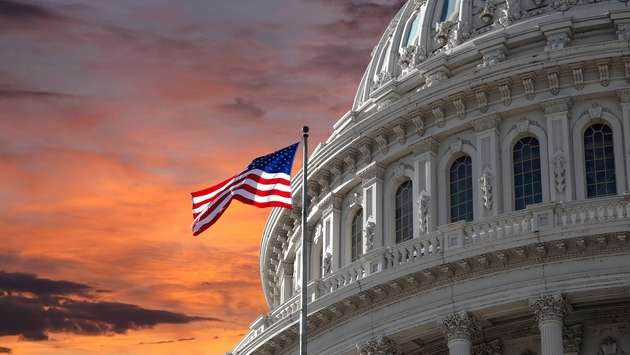A COVID Relief Now Coalition has been launched with organizations in the private and public sectors calling on Congress and the Administration to provide relief to businesses and governments before elected officials go on recess in preparation for the upcoming election.

Led by the American Hotel & Lodging Association (AH&LA), the coalition held a press conference to warn Congress that if it fails to act, millions of employees will be furloughed or terminated; millions of unemployed Americans will lose their unemployment insurance pandemic benefits; hundreds of thousands of companies will be at risk of closing their doors forever, and the vast majority of state and local governments will have to curtail critical services in order to balance budgets due to a decline in tax revenue.
Chip Rogers, CEO of AH&LA, said that 150 organizations had originally signed up for the coalition in the 24 hours before the press conference while another 25 joined during the first half-hour of the press conference.
“There should be no recess without relief,” said Rogers, saying the coalition had sent a letter to Congress calling for a bipartisan deal. He said if there is a deal “both sides can take the credit.” If there is none, “both sides can take the blame.”
The hotel industry , said Rogers, is on the brink of collapse with the potential for 38,000 hotels liable to close within the next six months. He said there are several immediate possibilities for Congress. One is using the $150 billion in unused PPP funds to go to businesses hit the hardest. The other is changing the rules for the Main Street Lending Act so that money is actually distributed.
Speakers agreed that the original Paycheck Protection Program (PPP) had helped but was a short-term fix. The Main Street program, however, has been a failure with a tiny fraction of the half-trillion dollars allocated lent out so far.
Roger Dow, CEO of the U. S. Travel Association, said, “We have a problem that Congress has to fix.” He said before the pandemic travel represented 1 in every 10 jobs in the U.S. and 51% of those jobs have been wiped out – a rate double that of the unemployment level during the Great Depression of the 1930s. He said many travel businesses did not have access to the first round of aid and business owners are struggling to understand why leaders in Washington “are not at the negotiation table around the clock.”
A big mistake with the first PPP program, said Dow, is that at the last minute it cut out 501c6 organizations and that includes convention and visitors bureaus, destination management organizations, museums, Broadway and similar entities that have a major role in tourism.
Ivar Satero, director of the San Francisco International Airport, said the airport served nearly 58 million passengers last year and the fourth most international passengers in the country. Those numbers are now 80% lower and the idea that Congress would leave town without a relief package is not acceptable.
Among the speakers, several spoke directly to tourism while others spoke about how important tourism is to local municipalities. Van Johnson, mayor or Savannah, said that the city relies on spending from more than 14 million visitors a year. He said recovery will take years and that hotel tax revenues fell by over 40% in the first five months of 2020. Without aid, Johnson, said, agreeing with other government officials, essential services will have to be cut.
Clarence Anthony, CEO of the National League of Cities, said cities will be seeing tremendous losses from the crippling of tourism over the next few years. “We are not asking for a bailout,” he said, “we are asking for a partnership to make sure local government and the tourism community are not devastated even more.” He referred to Disney laying off 28,000 employees and said “this is the human face of this crisis. Without Congress doing their job to support us our nation won’t recover.”
Matthew Chase, CEO of the National Association of Counties, said, addressing Congress, “Do not go on recess without providing relief.” He said that “it can’t be forgotten that this is a people issue” as governments strive to deal with mental and physical health, the economy, COVID, natural disasters and more.
Leave a Comment